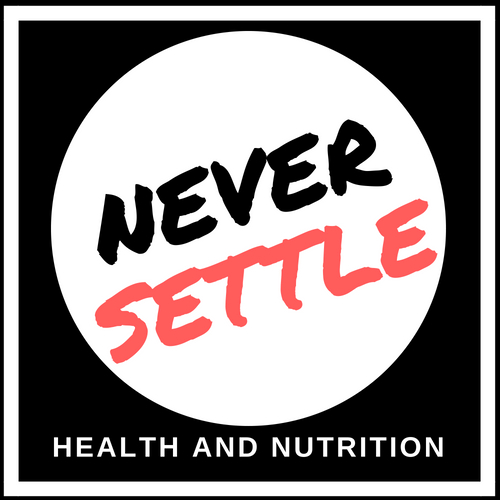So, it’s almost the end of February and then it will be March where New Year’s Resolutions go to die. And that’s ok! It’s hard to maintain intensity for much longer than 4-6 weeks if you chose an ambitious program. Now is the perfect time to pause and reflect on how to turn those short term gains into a more sustainable way of life.
Don’t get me wrong, I actually love some of the short term programs out there…Whole30, Whole Life Challenge, and 21-day Sugar Detox are all great ones that come to mind. But what happens after? I find that after the intensity and excitement of the “program” wears off, too many people either rebel and completely go back to old (or worse) habits or flounder, not knowing what the end game really is. Of course, I have also seen the opposite happen where someone gains great comfort in following the “rules” and continues too long on an overly restrictive diet.
But you know all this, you’ve been there! So without further ado, here are my top 4 strategies to help you cope with this transition and create some lasting change.
1) If you’ve been following a “program”, review the section of the book that talks about this very topic!
This seems like somewhat basic advice, but it’s too often overlooked. Most programs I’ve encountered actually do contain some well-thought out guidelines for what happens after the 30 days (or 21 days or 6 weeks or whatever it is). Most likely you skimmed through this part in your excitement to get started and may not recall the specifics. Be a good student, go back and re-read this. You can still use the rest of my tips to critically examine whether you want to follow your program’s instructions to a tee, but you owe it to yourself after all your hard work to take a look at what the intended transition was.
2) Reflect on what worked…and keep that going
There’s likely something in your plan that you totally nailed and maybe even learned to love! So first, take a moment to be proud of your accomplishment. Creating new habits isn’t easy! The accomplishments don’t need to be grandiose. Examples could include: you successfully drank x ounces of water every day, you moved your bedtime earlier by half an hour, or you switched from a muffin for breakfast to eggs and veggies. Make a commitment to keep at least that one thing for good.
3) Know thyself.
Conversely, if there were aspects of your resolution that didn’t work reflect on whether the program/goal/approach was really a good fit for your personality. For example, I love to exercise and have discovered over the years that I really need to work out almost daily for my own emotional well-being. Does that mean I happily lace up my running shoes and head out the door every morning on a solo run? Heck no…even though I completely understand what the effect will be on my mental state I can’t seem to do it! I’ve found I really need an external commitment to keep me accountable such as a running partner or 7 people waiting in a boat in the wee hours for me. So whenever I switch up my routine, whether as part of a resolution or not, I always make sure that my new plan involves an accountability aspect. Another example from a diet perspective is to consider whether going “cold turkey” or using slower transitions are easier for you. This is one of the first discussions I have with folks considering going on the autoimmune protocol (which is a drastic change for most), and we tailor the approach accordingly.
4) Know thyself…physically! Reflect on the appropriateness of the program for your unique physical needs.
Diets can fail you (not the other way around) for a multitude of reasons that have nothing to do with willpower. Ask yourself these questions: Did you feel more tired while you were on it? Were you constantly hungry? Did you hate everything you ate? Did you never get any relief from symptoms? Did you encounter more symptoms? If the answer to any of these was yes, then there is something wrong! It’s not even necessarily a bad plan, it just is a bad plan for you. Maybe you ended up eating more of a particular food that you are intolerant to like eggs or nightshades. Or maybe it steered you into eating too low-carb for your body, and your hormones got imbalanced. The main point here is that you shouldn’t feel ashamed or like a weirdo because you didn’t respond to a diet all your friends are achieving fabulous results from. Getting to the right diet for YOU is a work in progress, and persevering with a diet that isn’t working for you isn’t productive. Working with a professional at this point can be helpful, but you can discover a lot on your own by really paying attention to how your body feels after you eat certain foods. I love food journals for this purpose….not for obsessively counting calories but for being able to spot foods that are triggers for you. Contact me at julie@neversettlehealthandnutrition if you’d like a copy of the one I use.
That’s it! Wishing you the best of luck in your health journey ALL year, EVERY year!
PS The image below is actually the result of one of my New Year’s resolutions….taking our dog for more hikes with the kids! Good for the dog and all of us to get out into nature more.


